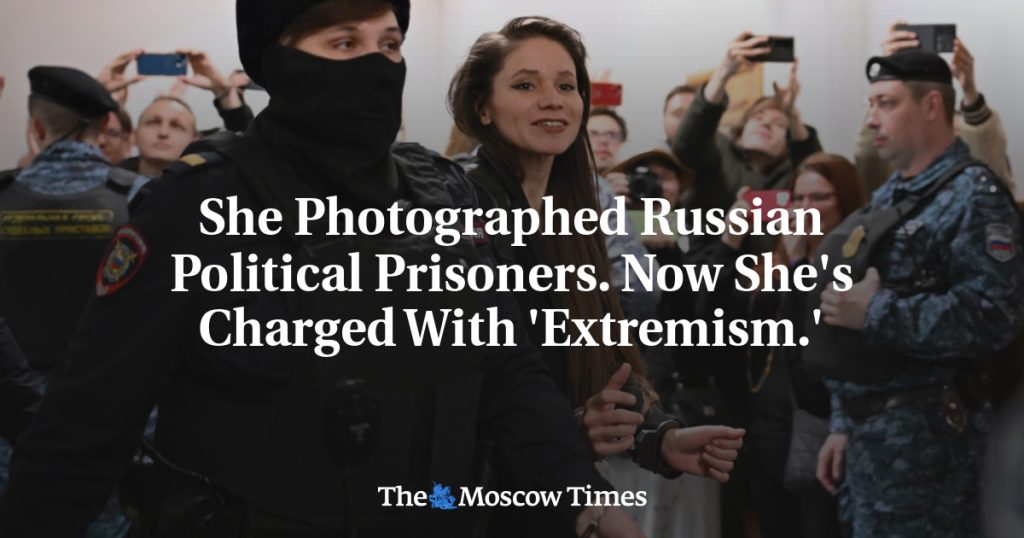Antonina Favorskaya, a former actress turned journalist, entered the world of media in Russia in 2022 with the goal of conducting interviews, reports, and staying out of jail. However, she quickly found herself on the frontlines of activism, taking photos of political prisoners in court for the independent news outlet SOTAvision. Despite the risks posed by the government’s crackdown on free media in Russia, Favorskaya continued her work, attending major trials and capturing photos of key figures such as opposition politician Ilya Yashin and Kremlin critic Alexei Navalny.
Favorskaya became deeply involved in documenting political prisoners and opposition figures, including Navalny and others considered to be targeted for their beliefs. Her activism and dedication to her work eventually led to her own arrest on extremism charges, which she and her colleagues believe are retaliatory actions against her journalism and political views. Despite facing up to six years in prison, Favorskaya remained steadfast in her beliefs, showing resilience and courage throughout her legal battles and court hearings. Her arrest sparked international condemnation, with SOTAvision appealing to the United Nations High Commissioner for Human Rights over the unjust treatment of journalists in Russia.
The Russian government’s escalating crackdown on independent journalism has resulted in the imprisonment of at least 27 journalists and the blocking of over 130 media outlets in the past two years. Favorskaya’s case is just one example of the authorities targeting journalists, lawyers, and activists who are critical of the regime and perceived as threats to the ruling power. Despite the challenges faced by journalists in Russia, Favorskaya remained defiant, smiling at reporters in court and expressing her unwavering commitment to her work. Along with other detained journalists, including Olga Komleva, Favorskaya has been designated as a political prisoner by human rights organizations.
The persecution of journalists and activists in Russia is part of a broader campaign to suppress dissent and opposition to the government, particularly in the context of Navalny’s anti-corruption movement. The repressive actions taken against Favorskaya and others reflect a pattern of intimidation and harassment aimed at silencing independent voices and stifling freedom of expression in the country. Despite the obstacles and risks involved in her work, Favorskaya remained undeterred, continuing to cover important events and advocate for political prisoners even as she faced her own legal troubles.
Amidst the crackdown on free media and independent reporting in Russia, journalists like Favorskaya have emerged as symbols of resistance and courage in the face of government repression. Their commitment to upholding journalistic integrity and speaking truth to power serves as a reminder of the importance of a free press in holding authorities accountable and promoting transparency in society. Despite the challenges and dangers they face, journalists like Favorskaya continue to strive for justice and truth, risking their freedom and safety to shed light on critical issues and defend the principles of democracy and human rights. The international community has a duty to support and protect journalists facing persecution and censorship, ensuring that their voices are not silenced and their work is not in vain.















